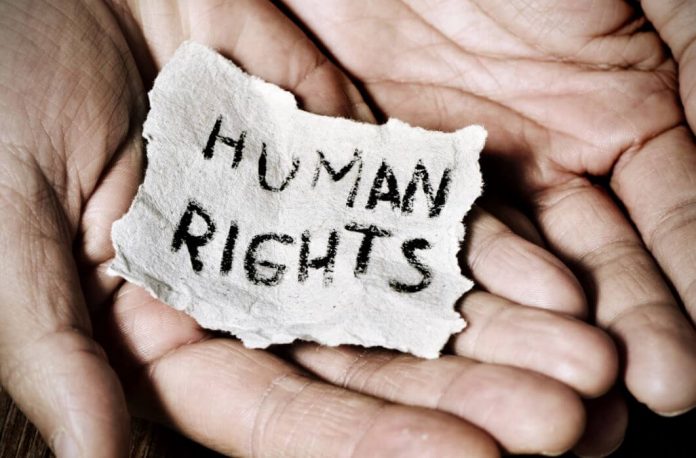This article is written by Rashmi Jha, from Amity University, Mumbai. This article is about the analysis of development in human rights and the interrelationship between them.
Table of Contents
Introduction
Philosophically, human nature is essentia ut operator. Humans are the essence that exists in all their activities. Meanwhile, sociologically, human nature is always in a movement of change. In this case, Thomas Hobbes once put forward a proposition that life in motion is eternal (vitamotus prospectus est). At the same time, Pascal, in almost the same language, said that human nature is in action and change, Notre nature est dans le Mouvement Therefore, ‘development’ as a model of evolution has enormous relevance to life and human nature itself.
Definition of development
According to Nisbet, development is one of the oldest and most vital of all western ideas. According to him, the main element of this perspective is the metaphor of growth, namely growth that is manifested in organisms. Following this metaphor, development is understood as a directed accumulative process that results in structural differentiation and increasing complexity. Meanwhile, Bjorn Hettne views that development is an open concept that must be defined contextually. As our understanding of the process deepens, as well as the emergence of new problems that need to be solved, ‘development’ must constantly be redefined problems continuously, but also at the same time presents a problem for every solution.
In the trajectory of history, we have seen that Europe that was devastated was very ambitious to carry out a development plan after World War II. The initial instrument in European development, according to Bjorn, was a massive aid program from the United States through Marshall Aid. This program has a dual purpose, to run the world economy according to the Bretton Woods system, and at the same time, it is a project to curb the spread of communism as part of their Cold War agenda.
Furthermore, Bjorn considers that the reconstruction of Europe is directly related to the problem of development in ‘new’ nations, which are known by many terms: underdeveloped, undeveloped, emerging, poor, developing, and so on “colonial economy” became “development economy”. Therefore, the initial optimism of this development paradigm must be seen in the socio-historical setting of the successful rebuilding of Europe.
Development theory
Colonialism and globalization have led Third World countries to adopt development recipes in various models and forms. But in essence, the initial paradigm of the conception of development reflects the interests of the ruling elite in developing countries. According to Bjorn, the modernization paradigm presupposes that a society characterized by industrial capitalism is desired by all, but in fact, no one ever chooses capital accumulation and industrialization, a process that is often followed by the use of coercion and violence. The more backward a country is, the more coerced it appears to be. The modernizing elite, cleverly enough, kept silent about the horrific creative destruction, or what Peter Berger called the “pyramid of sacrifice”. Therefore, the theory of development is not value-free.
According to Arndt, the agenda of development theory from a simple growth model to a comprehensive and holistic theory of historical social change, besides being able to be analyzed based on the debate on the dimensions of formalism versus substantivism, is also reflected in the repeated choices between growth and development. Regarding the development paradigm that continues to this day, the grand narrative of growth is the dominant discourse that the West has most successfully exported to developing countries.
Human rights as a basis of growth and development
In addition to the ideology of growth, the West has also offered other development recipes. In this connection, Nerfin illustrates that the utopian trend in development theory is perhaps best summed up in the concept of “other development” popularized by Dag Hammarskjold’s 1975 report, “What Now”, which was prepared on the occasion of the Seventh Special Session of the United Nations General Assembly and described in more detail continued in the journal Development Dialog. According to him, “other developments” should be oriented to the following points:
- Need-oriented (aimed at meeting human needs, both material needs and non-material needs. Endogenous (originating from the heart of every society, which sovereignly determines its values and vision of its future).
- Independent (meaning that every society basically relies on strengths and resources) itself in terms of the strength of its members and its natural and cultural environment).
- Ecologically good (rational use of environmental resources with full awareness of the potential of local ecosystems as well as global and local boundaries imposed on current and future generations).
- Based on structural transformation (to realize the requirements of self-management and participation in decision-making by all those affected by the decision, from rural or urban communities to the world as a whole, without this the above objectives cannot be achieved).
In line with that, Olle Tornquits also proposes to overturn the development paradigm in a political context. According to him, the most significant setbacks for mainstream development studies are the lack of empirical foundations in the Third World, the bias towards democratic models based on generalisations or even grand universal theories, and focusing on elite levels. On the other hand, the ‘technical’ advantages of the development paradigm may help us offset the impossibility of avoiding fragmentation in Third World studies while building a solid empirical base. In other words, what must be done – when a solid empirical basis is found for aspects of politics and development in the Third World – is to expand the study of political action and overturn its practical and theoretical grounds.
On a more implementable level, Tornquist offers several recipes for the ‘overturn’ move. First, we must broaden the framework not by starting with narrow issues of political development but with more relevant questions about the role of politics as people seek to improve living standards and utilise their resources. Second, we should no longer start with empirical generalisations based on European and North American norms and experiences but rather with empirical findings in Third World politics and development. Finally, we need to return to the West to seek experiences that may enlighten our understanding of what is happening in the Third World and offer a new perspective on the West itself.
The counter against the development paradigm has also begun to be launched by observers and activists in Third World countries. Especially those who are starting to realise that their country has become a cash cow of developed countries. Structural transformation, of course, is not the only alternative approach. Still, the orientation of this transformation is determined by the normative content that should be based on sincere cooperation between developed countries and Third World countries by prioritising human values in every plan. The emergence of a human rights perspective in the development paradigm does not come immediately. This phenomenon is born and comes from a long dynamic process. Discourse maps on the view of human rights in development can be found in various models of debate. Some pretty remarkable things include the accommodation of development rights in various international covenants, such as the covenant on economic, social, and cultural rights as well as the covenant on civil and political rights.
Ideal development
At a more implementational level, the Vienna Declaration and program of action, especially at points 8 to 10, has provided clear instructions regarding the relationship between development and human rights.
Democracy, development, and respect for human rights and fundamental freedoms are interdependent and mutually reinforcing. Democracy is based on the freely expressed determination of a nation to establish its own political, economic, social, and cultural systems and its full participation in all aspects of its lives. In the context mentioned above, the promotion and protection of human rights and fundamental freedoms at the national and international levels must be universal and carried out without being related to conditions. The international community must support the strengthening and promotion of democracy, development and respect for human rights and fundamental freedoms worldwide.
The World Conference on Human Rights reiterates that least developed countries, committed to processes of democratisation and economic improvement, many of which are in Africa, must be supported by the international community for them to be successful in their transition to democracy and economic development. The World Conference on Human Rights reaffirms the right to builders, as implemented in the Declaration on the Right to Development, as a universal and inalienable right and an integral part of human rights.
As stated in the Declaration on the Right to Development, human beings are the main subject of development. While development supports the implementation of all human rights, the absence of development cannot be used as an excuse to justify the reduction of internationally established human rights. Countries must cooperate with each other to ensure development runs and overcome obstacles to development. The international community must develop effective international cooperation to realize the right to development and remove barriers to development. For progress in the implementation of the right to development to continue, effective development policies at the national level are needed, as well as equitable economic relations and a favourable economic environment at the international level.
Human rights as an integral element of the development agenda
Human rights and development is an important matter of concern in International society. One principal human rights problem is its successor implementation. Human rights are neither universally included nor respected; national and even worldwide implementation of human rights requirements may be characterized as uneven, from time to time it is getting weak. Human rights have been enacted in the institutional surroundings of the United Nations, and its feature becomes customary as binding legal guidelines with the aid of using some of the states. A total of 140 of 185 member states of the United Nations has ratified the International Covenant on Civil and Political Rights while 137 states have ratified the International Covenant on Economic, Social, and Cultural Rights.
Thus, human rights exist in the balance between a weak international community and state powers that are, to varying degrees, able and willing to make human rights more than endeavours. Human rights remain unknown or abstract, and if human rights are to be an integral part of a development agenda they must provide empowerment for people to be able to claim their rights and address their needs and problems. Hence, there are two strategies that appear particularly pertinent for human rights defenders to incorporate their agenda into a development agenda: a participatory vision of promoting the rule of law, and a genuine interest in the aspects of economic, social, and societal cultural rights.
The promotion of the rule of law is relevant for two reasons: firstly, the poorest sections of the population suffer most from the arbitrary application of the law; Impunity and corruption add to insecurity and insecurity will mainly discriminate against poorer sections of the population. Second, promoting the rule of law should be seen as part of an agenda to promote access to justice; and to bring the formal justice system closer to the people. Meaning of the common systems, but there is obviously a need to align formal and common systems.
In the context of development policy, real attention to the enjoyment and observance of economic, social, and cultural rights is necessary for human rights defenders and activists, because, in addition to personal protection and safety, these rights are more relevant to target groups. Unfortunately, livelihood, whether it is access to food and water, or shelter and clothing, remains the top priority of most third world populations. In the context of development, human rights defenders cannot resist addressing these priorities, although they may vary from place to place, precisely because they are related to this core human right: the right to dignity.
Conclusion
Improving the integration of human rights and development activities lies in the use of human rights in empowerment strategies. Exclusion is critical to the living conditions of the poor and disadvantaged groups in terms of the law. Three factors dominate their interaction with the formal judicial system: 1) Lack of understanding and confidence in the authorities, and lack of conviction that a person has and the related rights, 2) ignorance of their rights and 3) lack of economic and material access to modern legislation (this is too expensive, too far, and usually does not work in local institutions) is also assumed. Therefore, combating impunity and corruption and improving access to justice remains the key to empowerment strategies. The second part of the empowerment strategy is to enable marginalized population groups to claim their rights. Therefore, equity and knowledge of rights are essential. The core of this strategy seems to be a changing paradigm of the judicial system, which is less legal and more social, which excludes some human rights discourse from courts and mainstream institutions. In areas where there is an urgent need to protect and respect human rights.
References
- https://academic.oup.com/jhrp/article/1/1/51/2188613
- https://www.cesr.org/human-rights-essential-human-development-least-developed-countries
LawSikho has created a telegram group for exchanging legal knowledge, referrals, and various opportunities. You can click on this link and join:
 Serato DJ Crack 2025Serato DJ PRO Crack
Serato DJ Crack 2025Serato DJ PRO Crack











 Allow notifications
Allow notifications


